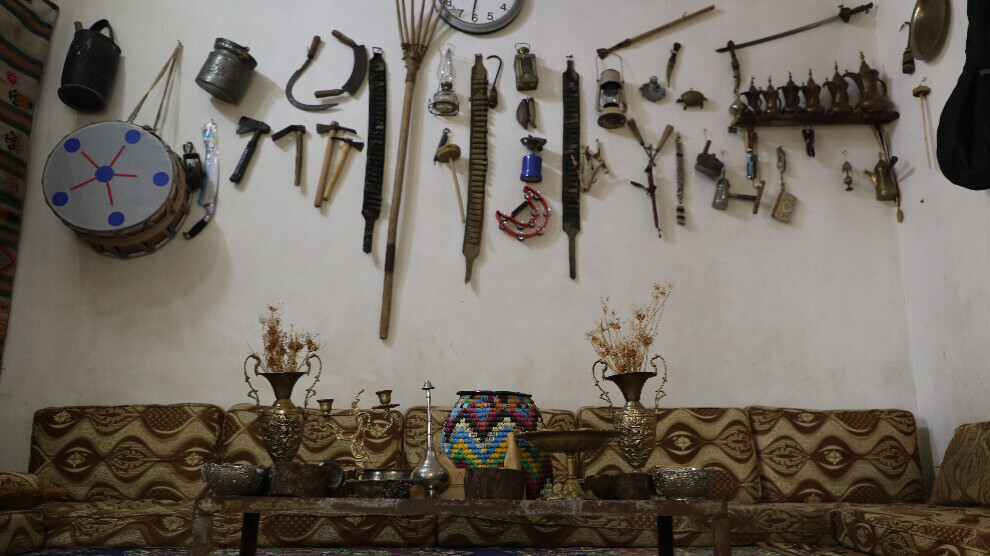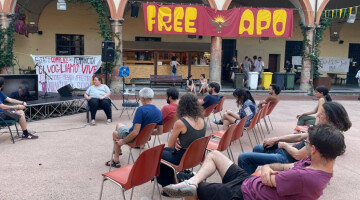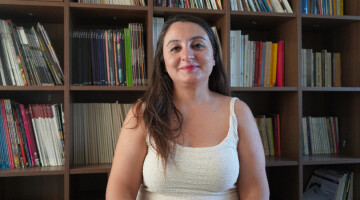Hamûdê Elo is from the village of Kurzelê in Sherawa, in the province of of Afrin. He currently lives in Shehba due to the occupation of the Turkish state. He has collected tools, equipment and symbols representing Kurdish culture in his home in Afrin for many years.
Elo, which had to leave years of labor behind due to the occupation, does not give up and continues its work in Shehba.
Speaking to ANF, he said that he inherited the protection of Kurdish culture from his father and added: "My father was engaged in agriculture. He was connected to his land. He was integrated with his land. A person who is connected to the land is also connected to his culture and strives to keep his culture alive. My father was one of those people. He constantly collected, protected and looked after the tools and equipment that were symbols of Kurdish culture. He would tell his children what each symbol meant so that they would not be forgotten or lost."
Everything remained in Afrin
Noting that his house in Afrin was overflowing with symbols depicting Kurdish culture, Hamûdê Elo said: "The symbols that kept our culture alive were in our house in Afrin. There was a cultural heritage left by our ancestors. But everything remained in Afrin. The mercenaries seized our house and village. We did not have time to save our cultural heritage. Our house was plundered, all objects broken and burned by the mercenaries, because their aim was to destroy our culture. But today we cover our house in Shehba with tools and equipment representing Kurdish culture, from the walls to the coffee tables."
Educating children
Hamûdê Elo said that he brought together the tools and equipment representing the Kurdish culture with great difficulty and added: "My goal is to keep our culture alive and prevent it from being forgotten."
Elo is a member of TEV-ÇAND. He said that he was interested in culture and art at a young age and added: "I was about 13 years old. I would secretly take my brother's saz with me to school and play. My teacher noticed my talent. So I started singing and playing saz. I have been playing saz since 1986. I learned to play the organ in the 1990s. I used to sing and play at weddings. I also teach children how to play the saz and give voice lessons. It is impossible for a child who does not know his culture to know himself. That's why I teach my children how to play the saz, sing, and strengthen their ties with art, in today's conditions."















